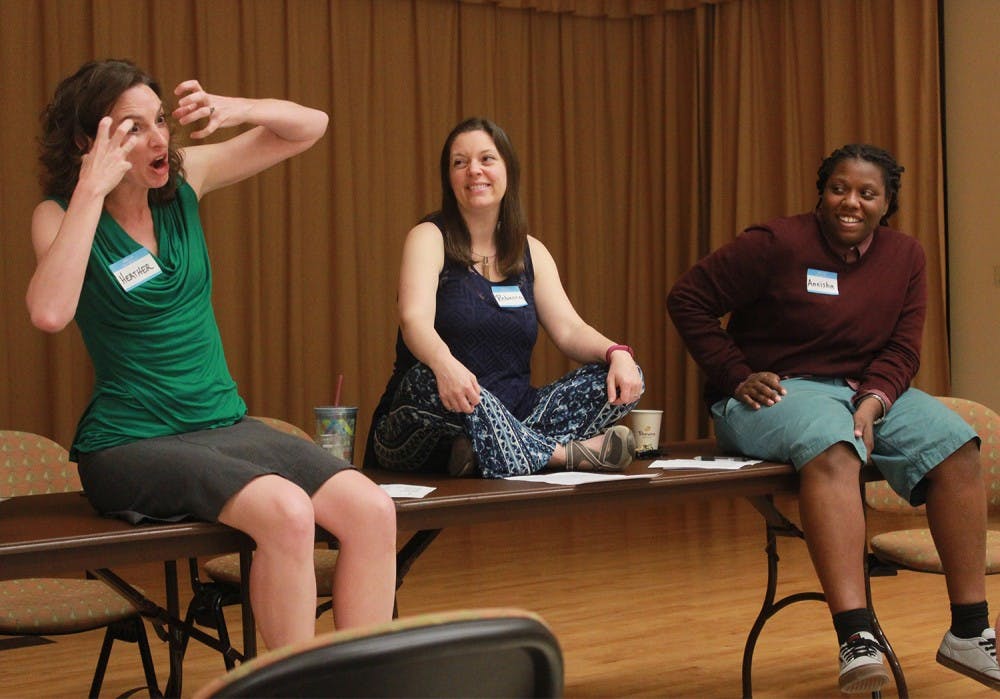“When I started to put that idea out there, and I said to people, ‘Yeah, I’m doing an all-female “Titus” I’d get really weird looks. And people were like ‘What? Why?’” Strickland said.
“So it was the reaction of me wanting to do this that caused me to re-examine this choice.”
During a panel on gender and theater, Bare Theatre company’s Rebecca Blum, Aneisha Montague and Strickland talked about their experiences being part of an all-female production of “Titus Andronicus.”
While they are special in that they are a group of artists dedicated to simple, nontraditional and spontaneous theater with little other than a room, an audience, the actors and the text, they are unique in that it is the norm to employ gender-blind casting.
“If you are coming into a Bare audition as a man, you have to look at the females as equal competition,” Blum said, who is the associate director for the Bare Theatre. “Whereas if you’re a man going into any other audition, you don’t see the females as competition.”
Strickland said she wanted to direct “Titus Andronicus” — which is a traditionally an all-male show — with an entirely female cast because of her love for women.
But at first, Strickland said she was less focused on using theatre as a way to empower women and more focused on developing the overall storyline.
“When I first started thinking through this concept, I wasn’t that concerned with expanding the female voice in theater or in the arts or with women doing a better job and empowering each other,” she said.



